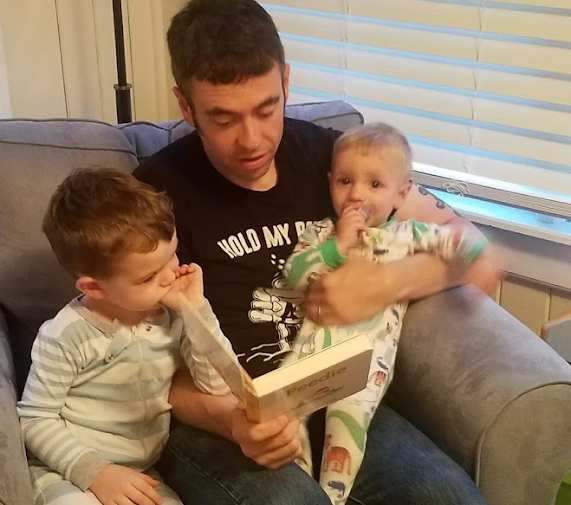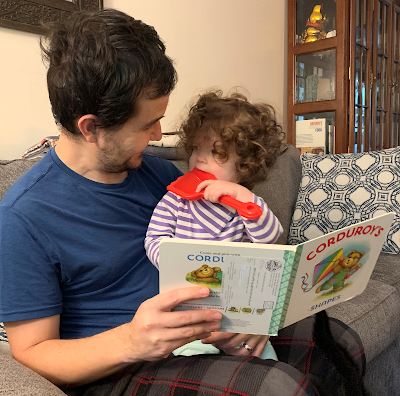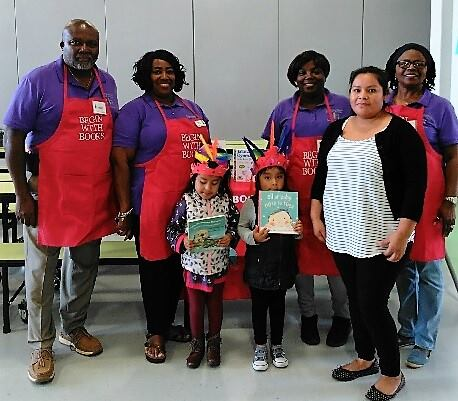The Imagination Library is Evidence-Based --
What started out over 25 years ago as Dolly's desire to get books into children's homes in her home county in East Tennessee, has grown into a global book-gifting program that has mailed over 140,000,000 books and has over 1,600,000 children enrolled. Dolly Parton's Imagination Library (DPIL) mails more than 1.6-million brand new, high quality, age-appropriate books around the world every month. These books are sent directly to children's homes from birth until five years of age. BEGIN WITH BOOKS (BWB), the Charleston County affiliate for DPIL, has 4,788 children receiving books, with 422,237 books having been delivered to 14,225 children since 2010. In keeping with Dolly's vision, BWB aims to foster a love of reading among preschool children and their families. Dolly's goal is to get children excited about books and to inspire them to "Dream More, Learn More, Care More, and Be More"
Children are better prepared for school
Fostering a love of reading and making reading an enjoyable habit have far-reaching implications. Children quite simply are better prepared for school and life when reading is valued and nurtured in the home. The positive impact of early family literacy habits is well-evidenced from research in the United States and around the world. DPIL has reviewed over 20 years of research conducted on its programs at the local level in the United States and internationally. This makes it one of the most evidence-based early literacy programs available.
Families spend more time interacting and talking with their children
The program is extremely popular in communities where it is implemented. Findings show significant improvements in the home literacy environment, stronger early reading skills, and more positive attitudes towards reading. Through engagement with books, participating families spend more time interacting and talking with their children, resulting in better language development and larger vocabularies. Vocabulary at school entry is a strong predictor of academic achievement in the early grades and beyond. Children with larger vocabularies spend less time learning to read and more time reading to learn. This gives them an advantage that just keeps growing, as the more words they know, the more likely they are to learn new ones at a faster pace and be able to take on longer and more complex stories.
Children pick up the skills to break the code of reading
Studies show that children enrolled in DPIL consistently outperform their non-participating peers in the acquisition of emergent literacy, or pre-reading skills. These children are better prepared to learn to read when they arrive in kindergarten. Alphabet knowledge, phonological awareness, and conventions of print are not skills that children acquire naturally - they need to be shown and taught. For example, in English, pages are turned from right to left and words are read on the page from left to right and from top to bottom. Some children arrive in kindergarten without even the most basic of such book handling skills. Because children enrolled in DPIL programs are read to more often, their alphabet knowledge and familiarity with letter sounds and patterns are correspondingly stronger as well.
Children's books are filled with phonemic and grammar clues to help break the code of reading. Authors use repetition, rhyme, alliteration, and lots of common words to help children interpret sentences and begin to recognize patterns and rules of spoken and written language. Studies show that the benefits of early literacy skills are more pronounced the longer the children are in the Imagination Library program, and particularly for children from lower income neighborhoods.
Children and parents want to read together more often
Another area of research showing robust positive improvement is in attitudes towards books and reading for both parents and children. The more enjoyable the reading experience is for the family, the more they will want to read together. For children, the desire to read is a very important first step in learning to read. Motivation to read is a strong predictor of future reading and school success. And DPIL's commitment to diversity means that children see themselves reflected in the variety of unique and diverse books they receive.

Familial bonds are tighter and home life is more stable
Shared experiences with books strengthen the emotional bonds between children and parents, providing more stability and an improved family atmosphere. The American Academy of Pediatrics (AAP) recommends reading to children at least 15 minutes a day. It doesn't have to be 15 minutes in a row. Books don't need to be finished, nor do all the words need to be read. Just turning the pages and talking about the pictures is enough.
Local partnerships build stronger communities for children
Another strength of DPIL programs implemented at the local level is the relationship building with libraries and community partners in children's health and education. For example, BEGIN WITH BOOKS has a strong presence in Charleston County and works tirelessly to establish relationships with libraries, daycares, schools, medical centers, and organizations committed to the well-being of young children. BWB gets books out into the community through its Little Library deliveries, models good reading practices through story-times, and facilitates enrollment. Volunteers share the love of books by attending neighborhood events for young children and enrolling families. Extensive research studies and reports support the information provided in this blog. Please refer to the research section on the Imagination Library website.-- Caron Bell, PhD, Early Childhood Development and beginwithbooks.org volunteer
BEGIN WITH BOOKS
6296 Rivers Ave., Suite 100
North Charleston SC 29406
843-724-7100
E-mail us at:
BeginWithBooks@palmettoproject.org
Follow us on Facebook at Begin With Books
Follow us on Twitter @BeginWithBooks and on
Instagram at BEGIN WITH BOOKS
Donate at:






Comments
Post a Comment